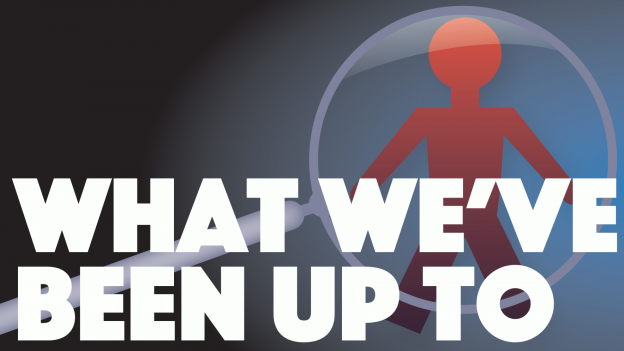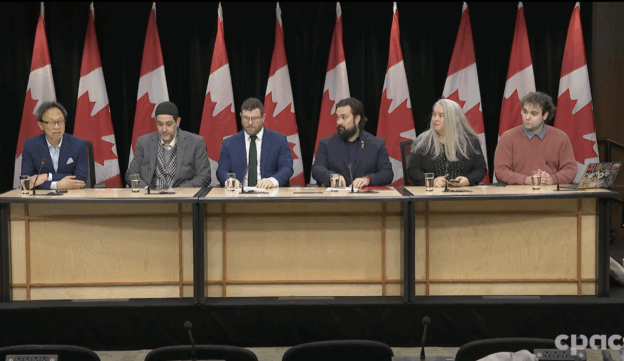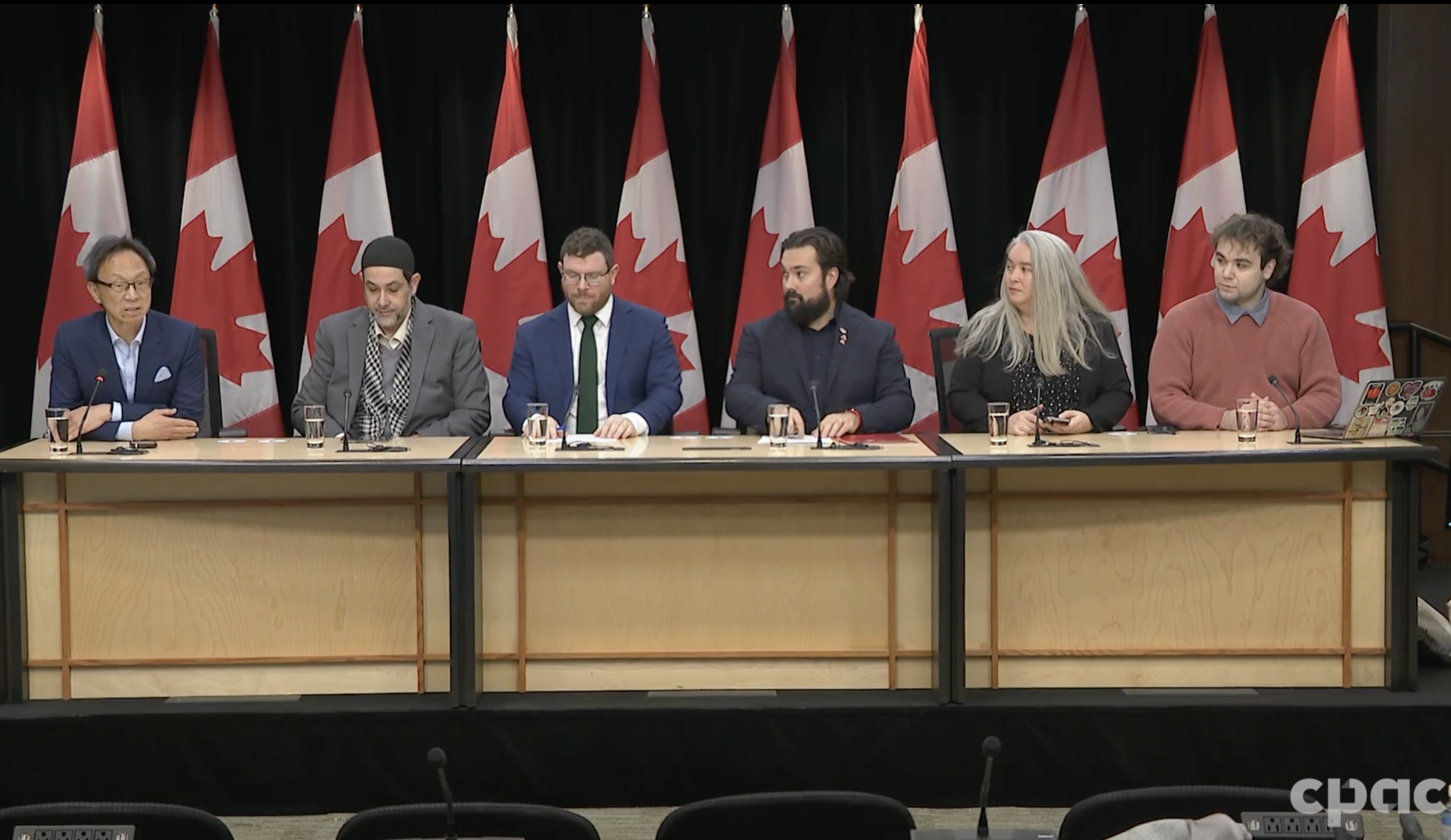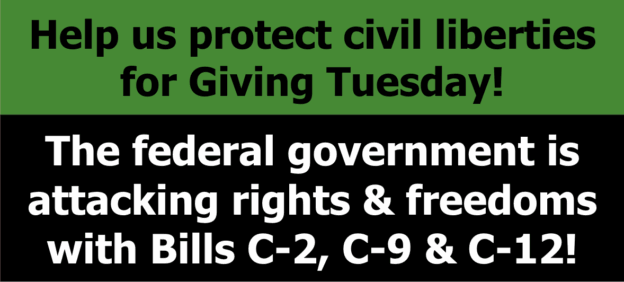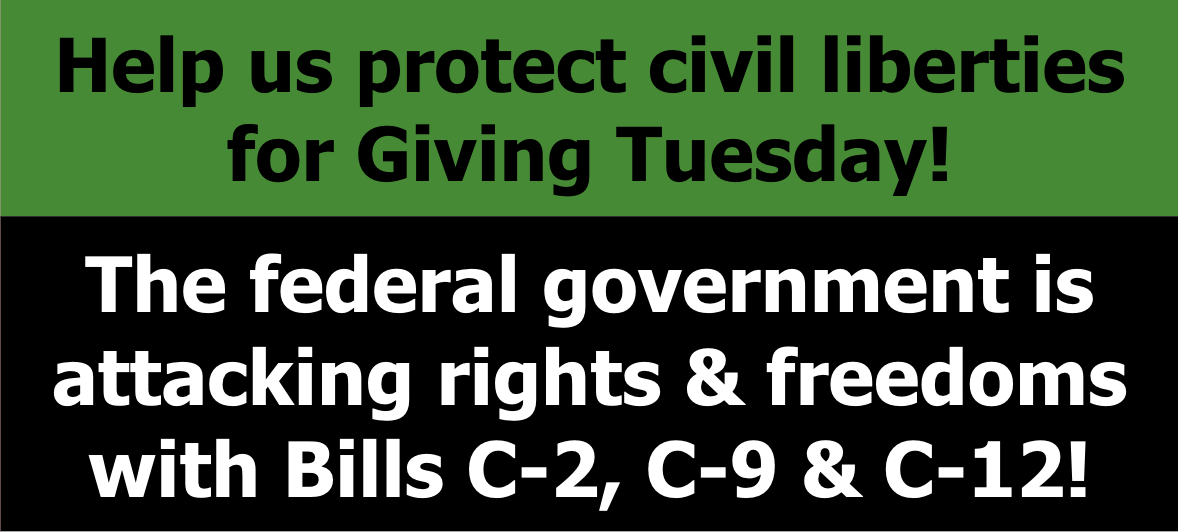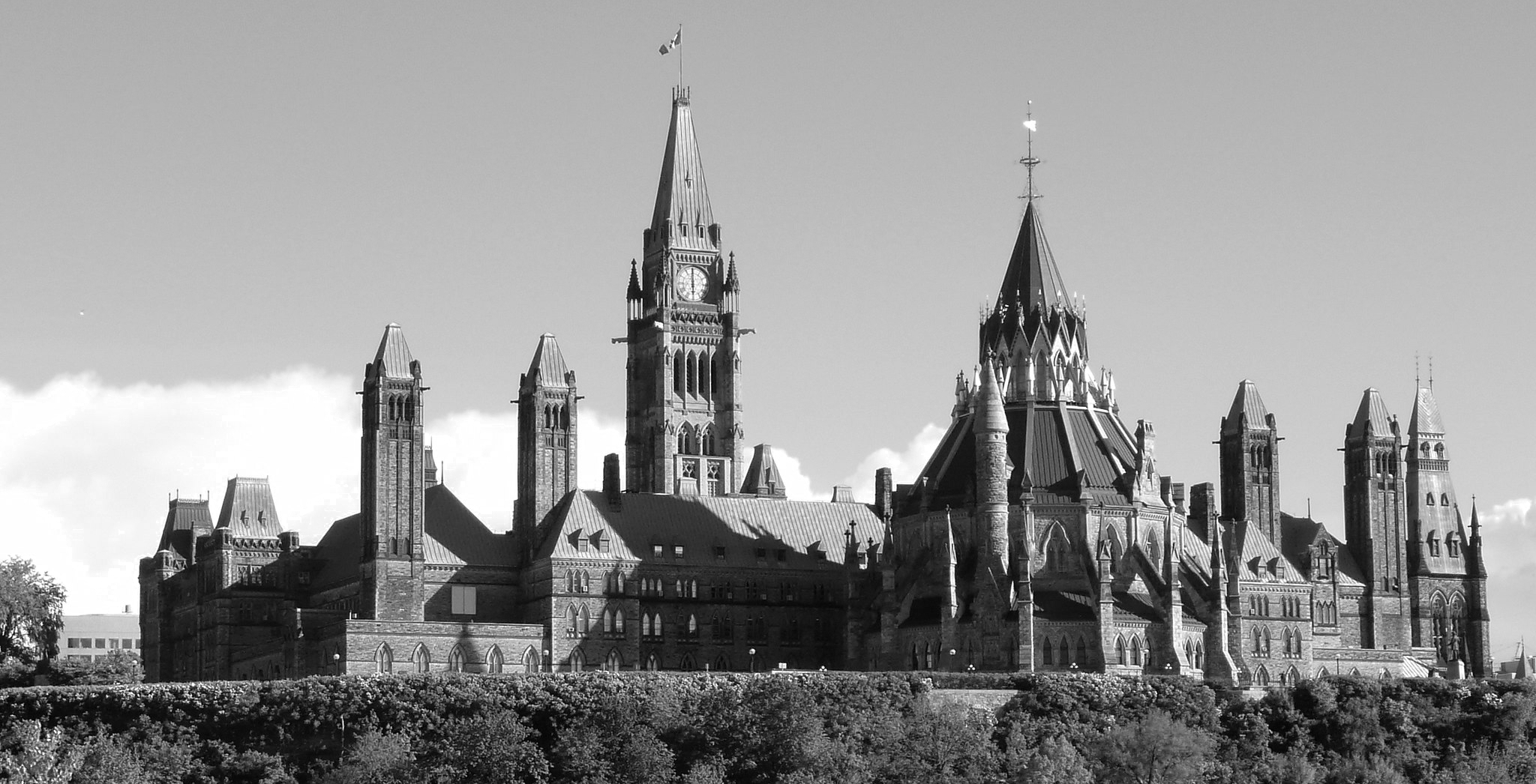
Credit: Tom Bastin/Flickr CC BY 2.0
Here is what we’ve accomplished in the second half of 2025 thanks to your support:
Border bills C-2 & C-12
Bill C-2, the rights-violating Strong Borders Act, was tabled in June 2025. The legislation is anti-privacy, anti-migrant and anti-refugee and will make people across Canada less safe by arbitrarily limiting the ability of individuals to claim asylum in Canada, in violation of international human rights law; allowing for the mass cancellation or suspension of immigration documents and applications (ex: visas, permanent residency cards) for entire groups of people, including individuals from certain countries, based on undefined “public interest” reasons; allowing police and intelligence agencies warrantless access to our personal information, in violation of privacy rights; granting the government the power to issue secret orders to internet service providers to modify their systems to facilitate surveillance and possibly undermine encryption, placing our data at risk; allowing Canada Post to open and search our letter mail; and much more.
Bill C-12, the Strengthening Canada’s Immigration System and Borders Act, was tabled in October 2025 in response to critiques of C-2, particularly around privacy violations. The bill replicates Bill C-2’s anti-migrant and anti-refugee provisions, among others. With support of opposition parties, the Liberal government intends to pass Bill C-12 more quickly, while stating it will take more time to examine the remaining aspects of Bill C-2.
Over this time, the ICLMG has:
- Reacted quickly with a preliminary analysis of Bill C-2 which was broadly quoted by media and MPs in the House.
- Met with several partners to discuss, strategize and coordinate the fight against Bill C-2
- Created an action calling for Bill C-2 to be withdrawn, and updated it to oppose Bill C-12.
- Co-organized an open letter opposing C-2, signed by 176 organizations.
- Co-organized a press release and press conference announcing the call from 300 organizations for Bill C-2 to be withdrawn.
- Met with several MPs, government officials and ministerial staff to voice our concerns.
- Presented on C-2 in a community forum organized by the Kensington-Bellwoods Community Legal Services.
- Attended briefings about C-2 organized by Public Safety, Justice Canada, and Finance.
- Co-organized and moderated a webinar attended by hundreds to stop Bill C-2.
- Signed onto a letter denouncing C-2 initiated by the Internet Society and published in the Hill Times.
- Participated in a press release denouncing Bill C-12, and supported a joint press conference against C-12 after many groups were blocked from testifying at committee.
- Sent briefs on C-12 to both CIMM and SECU committees.
- Spoke on a webinar entitled “Mapping the Threat: How Recent Federal Bills Would Erode Our Rights and Freedoms” organized by the Centre for Free Expression at the Toronto Metropolitan University.
Bill C-9: The “Combatting Hate” Act
Bill C-9, the Combatting Hate Act, was introduced in September 2025. The bill is aimed at preventing hate crimes but instead threatens the Charter rights and freedoms of all people in Canada, including those communities that the government wishes to help protect. Bill C-9 would give police discretionary powers to decide which symbols are “principally associated” with a listed terror entities as well as determine the motivations and intentions of protesters, and would create new categories of buildings and infrastructure around which these new rules would apply. These new powers, combined with increased jail sentences, will significantly undermine free expression and dissent, sending a chill amongst those who would otherwise take part in protests. The removal of the existing requirements for attorney general approval of laying hate propaganda charges compounds these concerns. This bill is highly alarming, especially in the context of the crackdown on Palestinian solidarity and anti-genocide protests.
Since it was introduced, ICLMG has:
- Met with several partners to discuss, strategize and coordinate the fight against Bill C-9
- Created an action calling for Bill C-9 to be withdrawn
- Organized a briefing on Bill C-9 hosted by Justice Canada
- Spoke at a webinar with Khaled Alqazzaz organized by CMPAC
- Appeared at the House of Commons Standing Committee on Justice re: Bill C-9
- Submitted a brief to the Justice committee
- Met with several MPs, government officials and ministerial staff to voice our concerns
- Spoke to several media about the bill
- Participated in a joint press conference hosted by Senator Woo
- Signed onto several joint letters calling for C-9 to be withdrawn
- Sent a letter to the Justice committee’s Chair urging him to rule out of order an amendment to C-9 that would have brought back a Charter-violating anti-terrorism offence, unrelated to C-9/combatting hate, bypassing debate and scrutiny at committee.
- Updated our action and sent a mass email urging people to denounce the addition of the above amendment to C-9. The amendment was removed!
Help us fight for justice and human rights.
Donate to the ICLMG!
Impacts of Countering Terrorism Financing
We continue to be heavily engaged in monitoring and addressing the impacts of Canada’s counter terrorism financing regime, especially its effects on civil society, civic space and international assistance. Since May, we have:
- Attended an information session and discussion on Canada’s Financial Action Task Force’s (FATF) Evaluation and the Role of Non-Profit Organizations (NPOs).
- Made a submission in advance of the Financial Action Task Force’s (FATF) upcoming on-site review of Canada’s anti-money laundering and counter-terrorist financing (CTF) regime.
- Continued to engage in Finance Canada’s dialogue sessions with civil society, including:
- attending the GoC-NPO Dialogue Session on derisking
- meeting with Finance Canada to share feedback regarding the National Inherent Risk Assessment
- attending and presenting on the impacts of financial service derisking on NPOs at the first ever NPO and Advisory Committee on Money Laundering and Terrorist Financing Dialogue
- Reacted to the much-anticipated report of the National Security and Intelligence Review Agency (NSIRA) on prejudiced audits of Muslim-led charities – an ICLMG recommendation from our 2021 report: New watchdog report finds government approach to counter-terror audits of Muslim charities is flawed, raises substantial concerns of bias and discrimination.
- Joined The Palestine Tribunal on Canadian Responsibility to speak about our work on how Canada’s counter terrorist financing regime is used to target, surveil, undermine and shut down Muslim-led charities and the impact that this has on support for and solidarity with Palestinians. We also denounced the several roadblocks targeting the event and some of its participants, including the hours-long detention and questioning by CBSA of guest speaker Richard Falk, a former UN Special Rapporteur on the situation of human rights in the Palestinian territories, at his arrival at the Toronto Pearson airport.

